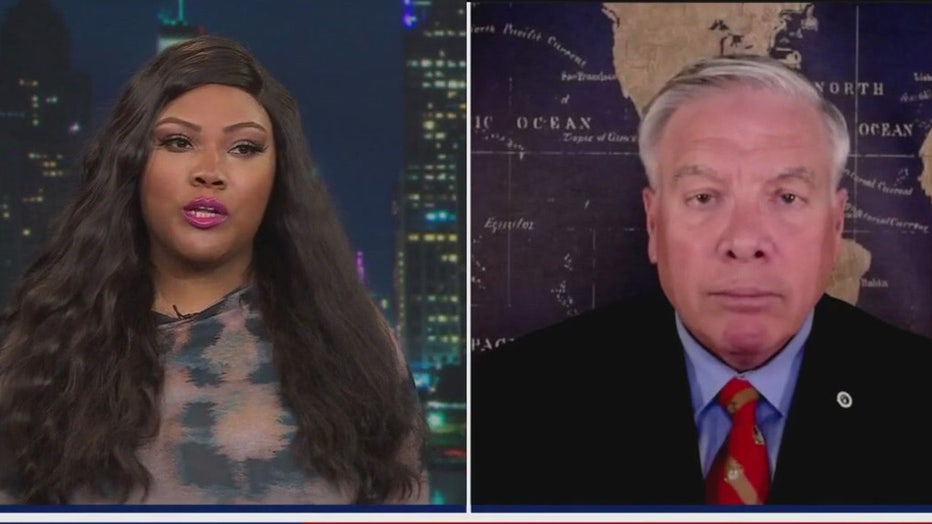THE INTERVIEW: Russia’s wartime economy: a fortress or a fragile illusion?

THE INTERVIEW: Airstrikes, prisoner swaps, and a shifting world order: Does Russia’s escalation end with their collapsed economy?
Hilary Golston speaks with Hal Kempfer, a former senior intelligence officer, to unpack Russia’s largest aerial assault yet, the high-stakes prisoner swap, and why America’s silence could embolden Putin’s next move. What’s really at stake as the war rages on?
DETROIT (FOX 2) - As Russia launched its largest aerial assault yet on Ukraine—more than 360 drones and missiles raining down on civilian areas—questions are growing about the staying power of Moscow’s war economy and the West’s ability to counter it.
Hilary Golston spoke with former senior intelligence officer Hal Kempfer to understand what’s driving Russia’s resilience and whether there’s any realistic path to pressure the Kremlin into backing down.
Golston asked if there’s anything the U.S. or its allies can do to truly cripple Russia’s economy, given that it grew 4.3% last year and holds over $600 billion in reserves, much of it in nontraditional assets like the yuan.
Kempfer said the U.S. has yet to deploy one powerful tool: reciprocal tariffs. "This would hit other nations hard, like China and India, which have been importing Russian oil," he explained. "That revenue is what buoys the Russian economy."
But even if new sanctions or tariffs were imposed, Kempfer warned the underlying structure of Russia’s economy has changed in ways that could make pressure ineffective. "Putin really can’t afford to end the wartime economy," he said. "If he was to end the war, the economy is so configured now to supporting wartime needs that it probably couldn’t go back anytime soon to a market-type economy. Politically, he wouldn’t survive that kind of macro shift."
Golston asked whether Russia’s latest strikes and statements—demanding the ouster of Zelenskyy and the dissolution of Ukraine’s government—suggest Putin’s only strategy is coercive diplomacy. Kempfer agreed, pointing to the Kremlin’s hardened goals. "They’re saying they want to take over Ukraine," he said. "They’ll use military pressure, not necessarily a successful invasion, but to set the conditions for a future ground offensive."
When pressed about the potential for legal accountability under the Geneva Conventions or the International Criminal Court, Kempfer was blunt: "Right now, I don’t think anybody there believes they’re going to be held accountable. Russia doesn’t really care about international law."
As the world watches, the question remains: Can economic pressure or legal consequences force Russia to scale back its war—or is the Kremlin betting on the world’s fatigue to keep its war machine running?

Hilary Golston interviews Hal Kempfer

